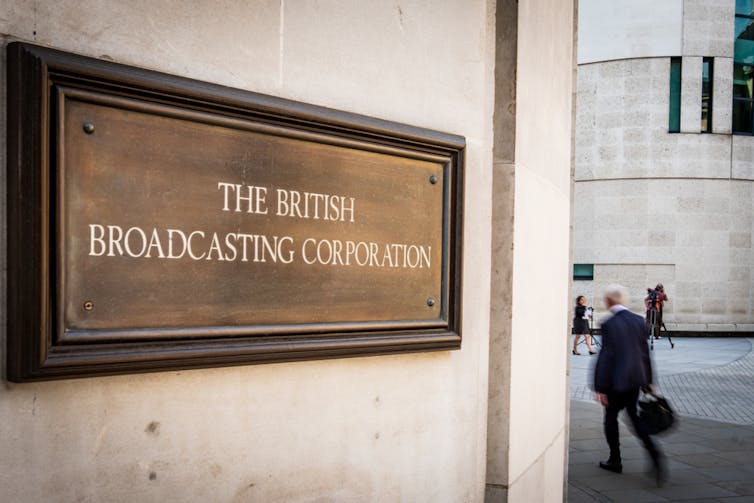As Russian tanks rolled into a foreign capital city, a BBC commentator captured the anguish of the moment: “And now must we stand by impotent and guilty watching the destruction of a nation … I think the feeling must be one of shame at this.” The year was 1956, the country Hungary.
It marked the start of a new era for Europe - much as many suggest the invasion of Ukraine does now – and it clarified the purpose of the BBC’s international services in the wake of the Suez crisis. The events in Hungary resolved, for a time, disagreement between the British government and the BBC about the nature of its external broadcasts.
In 1956 the UK Foreign Office had been arguing the BBC’s services should assertively push a British perspective. The BBC’s executives argued that engaging listeners relied on a more subtle approach through cultural programmes as well as politics. In the face of the Soviet crackdown it was obvious to both that impartial news was the priority. The formidable reputation of the BBC’s World Service was built in the years that followed.
Might a new war in Europe again resolve tensions over the purpose and value of the BBC? As ever these days, it’s complicated.
In January this year, Culture Secretary Nadine Dorries told the House of Commons, “The BBC needs to address issues around impartiality and group think,” and announced a freeze to the licence fee saying it would be the last such settlement.
Yet in March, her voice catching with emotion, she praised the performance of the BBC Russian service (which tripled its audience in a week) and thanked British journalists – including those at Sky and ITN - risking their lives to bring unbiased news from Ukraine.
In the face of massive Russian disinformation, the government is recognising the importance of trusted news and the value of the BBC World Service and the “soft power” it confers on the UK.
General Sir Nick Carter, former chief of the defence staff, told the Financial Times recently that the most important way to regain the initiative over Putin was an information manoeuvre reaching out to the Russian people. “The BBC World Service has always managed to reach people the world over,” he said.
The BBC’s international role has not always been so clearly recognised.
Until 2014, the World Service was funded directly by the Foreign Office through grant in aid. The Conservative-led coalition government, seeking public spending savings, determined that cost (some £250 million per year) should in future be borne by UK licence fee payers – in effect imposing cuts on the domestic BBC to fund international services.
One consequence of this was that the Foreign Office lost some of its influence over service priorities as the BBC determined funding choices. In 2015, the government provided an additional £85 million for the World Service. This was a U-turn brought about by the recognition of the BBC’s value in the growing battle for information set against greater investment by Russia and China in international broadcasting and information.

However, it means the strength of the World Service is now inherently tied into the strength of the BBC’s core funding – which has been cut by 30% in real terms over the last decade. With integrated newsrooms and newsgathering, as a consequence of the 2014 agreement, it is no longer coherent to praise the international arm of the BBC while decrying its UK news services.
As was obvious from the first two weeks of coverage of Ukraine, the BBC’s UK and language services have never been more integrated. And the internet has collapsed many of the differences between international and domestic audiences.
Russian blockades
As Russia stepped in to block BBC broadcasts and undermine journalists, the BBC revived shortwave broadcasting and offered international audiences advice on how to circumvent online blocks via the dark web. For UK audiences, the expertise of the BBC’s language services and its monitoring of news sources globally were front and centre, not marginalised as they often have been in the past.
The BBC’s reputation and expertise, in digital as well as in broadcasting, remains the UK’s greatest strength in the information war. This matters as a new iron curtain descends.
In today’s digital age, information is more important than ever in managing public opinion, whether it is the plethora of international channels, online news sites, or the darker arts of Russian troll farms (where teams spin out false information) and social media manipulation.
As Putin’s aggression forces European leaders to reassess priorities, the UK government may find – as they did in 1956 – that for all their reservations about the BBC it is one of their most powerful tools in the new cold war.
Richard Sambrook is a former Director of BBC Global News and the World Service.
This article was originally published on The Conversation. Read the original article.







